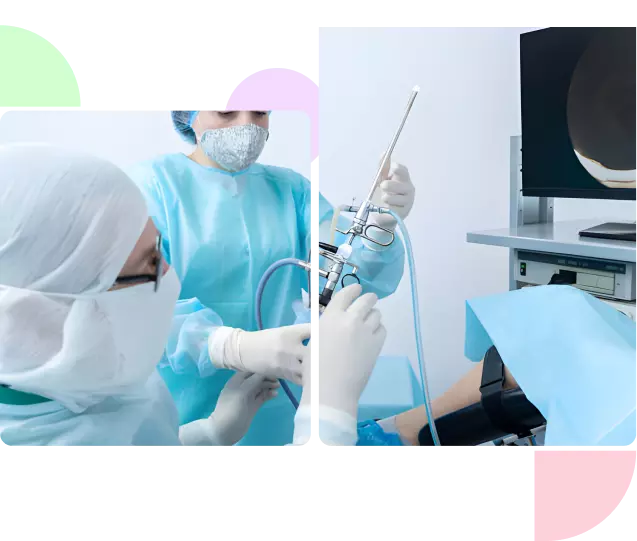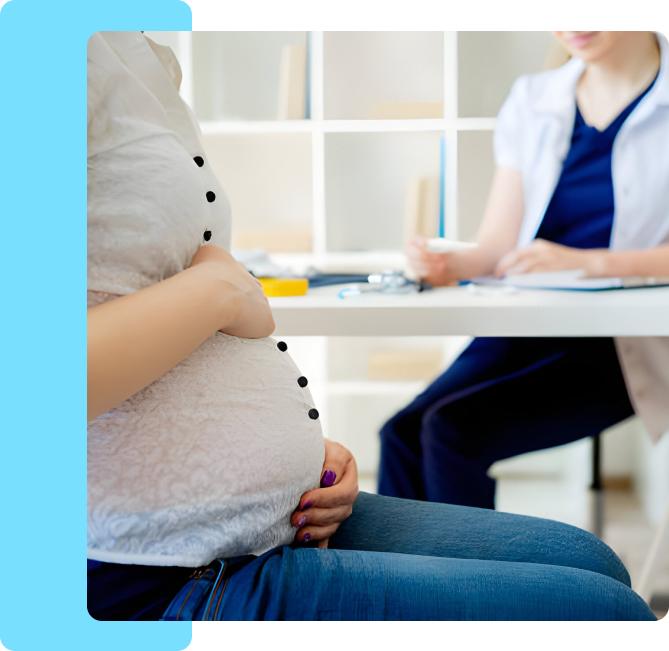
Using medical procedures, sperm is injected into a woman's reproductive system during artificial insemination (AI), a fertility treatment approach, as opposed to naturally occurring sexual activity.
This treatment is frequently used to help couples who are having trouble getting pregnant for a variety of reasons, such as low sperm count, problems with sperm motility, or cervical factors.
Sai Speciality Care in Bangalore offers advanced, customized artificial insemination (AI) services with compassionate support for your journey to parenthood.
The fertility clinic will schedule an initial consultation to start the procedure. In
order to discuss their medical history, any prior fertility treatments, and their
objectives for artificial insemination, the couple consults with a fertility specialist
at this phase.
The expert performs a comprehensive assessment, which could involve diagnostic
procedures like an investigation of the male partner's semen and the female partner's
ovarian reserve (blood and ultrasound tests).
The professional can customize the strategy depending on the unique circumstances of the
couple during this meeting, which also helps decide whether AI is a suitable therapy
choice.
After the first evaluation is over, the female partner is put through ovulation induction
if needed. During this phase, fertility drugs like gonadotropins or clomiphene citrate
are given to the patient to stimulate the ovaries and encourage the formation of one or
more mature eggs.
The woman's reaction to ovulation induction is continuously tracked using hormone
testing to evaluate estrogen levels and routine ultrasound images to follow follicular
development.
The woman's reaction to ovulation induction is continuously tracked using hormone
testing to evaluate estrogen levels and routine ultrasound images to follow follicular
development.
After a period of abstaining (usually 2–5 days), the male partner contributes a sample of
semen on the day of insemination. The procedure known as "sperm washing" or "sperm
preparation" is performed in the lab after the semen sample is collected in a sterile
container.
To concentrate the sample and isolate motile and healthy sperm, the sperm are separated
from the seminal fluid and other debris during the sperm preparation process. The sperm
utilized for insemination will be of higher quality and vitality thanks to this
technique.
The insemination process begins once the semen sample is ready. Intrauterine insemination
(IUI) and intracervical insemination (ICI) are the two main ways of insemination.
In intrauterine insemination (IUI), a thin, flexible catheter carrying the prepared
sperm is introduced through the cervix into the uterus after a speculum has been put
into the woman's vagina to see the cervix.
This makes it possible to implant the sperm directly into the uterus, nearer the
fallopian tubes, where fertilization is most likely to take place. To make it easier for
the prepared sperm to enter the uterus and go toward the fallopian tubes, ICI involves
depositing it close to the cervix.To be used for future embryo transfers, all viable
embryos will be stored on the fifth
or sixth day after fertilization.
A woman can be instructed to take a short rest after the insemination process to
facilitate the sperm's journey to the fallopian tubes. To maximize the conditions for
embryo implantation, it is advised to refrain from physically demanding tasks and heavy
lifting for the remainder of the day.
The lady may also be administered progesterone supplements to boost the luteal phase of
the menstrual cycle and increase the likelihood of successful implantation, depending on
the clinic's procedure and her particular situation.
To find out if conception has taken place, a pregnancy test is conducted about two weeks
following insemination. If the test results are positive, there may be further testing,
including hCG level measurements by blood tests and ultrasound images to verify fetal
development..
Artificial insemination, or AI, is used for a number of reasons to increase the likelihood of pregnancy and address certain infertility issues:


Post-procedure care after artificial insemination (AI) is essential to optimize the chance of conception and promote general well-being. It is advised that the individual take a rest for ten to fifteen minutes following the surgery to enable the sperm to go toward the fallopian tubes, where fertilization may take place.
For the rest of the day, it is best to avoid physically demanding tasks or heavy lifting to reduce the likelihood of uterine contractions interfering with embryo implantation.
The woman may be administered progesterone supplements to boost the luteal phase of her menstrual cycle, therefore improving the uterine environment for embryo implantation, depending on the fertility clinic's procedure and her particular situation.
